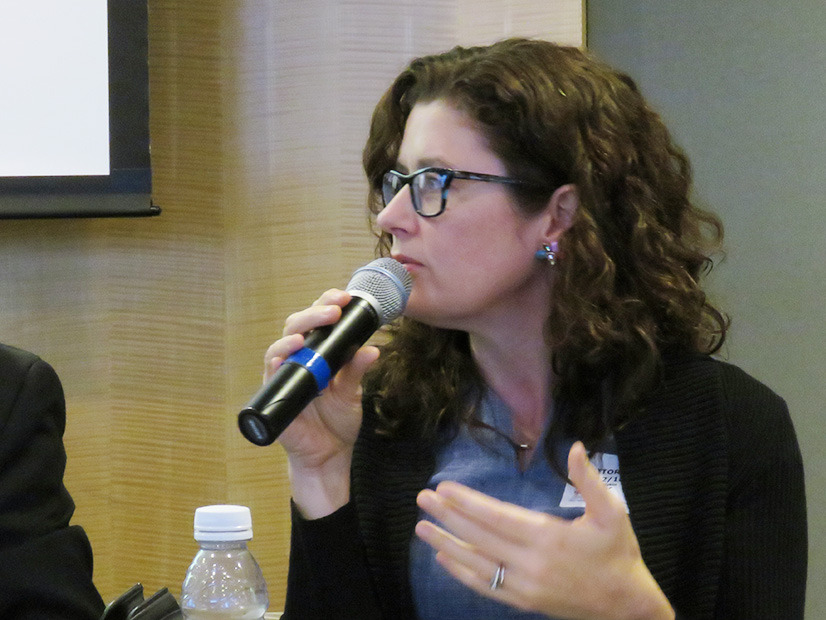A mild start to winter in New England has done little to ease the chill between the region’s grid operator and Connecticut’s energy regulator.
An exchange of letters between the two, published by the RTO this week, shows a continuation of a familiar back-and-forth that has intensified coming into this winter.
Katie Dykes, commissioner of the Connecticut Department of Energy and Environmental Protection, wrote to ISO-NE President Gordon van Welie on Dec. 17, following a push by the RTO to communicate with the press and public about the potentially precarious state of the region’s grid this winter. (See ISO-NE: New England Could Face Load Shed in Cold Snaps.)
“I am deeply concerned that the ISO appears, at least in its public statements, to be more concerned about our fuel security risks this winter, yet the ISO has done less than in previous years in terms of using the available tools to ensure the region has the fuel supplies we need,” Dykes wrote. She asked the RTO to answer eight questions, including about generators’ LNG arrangements and why it has not reinstituted its winter fuel-buying program for this year.
Van Welie responded on Dec. 23, making clear that the RTO feels it has done all that it can and that state and regional policy changes are needed to find a long-term solution. He laid out what ISO-NE has done in recent years to mitigate winter fuel security concerns, many of the steps revolving around communication, situational awareness and data sharing.
He noted that the fuel-buying plan (Winter Reliability Programs) was only a temporary measure and also that it “subsidized the carbon-intensive, oil-fired generators that the region is trying to wean itself from.” ISO-NE has no plans to reinstate them unless FERC directs it otherwise, van Welie wrote.
He instead pointed back to state and regional policymaking as the best long-term solution.
“We are concerned that the energy adequacy problem may get worse over time until policymakers and stakeholders in New England can successfully engineer a clean energy replacement for the current balancing energy source, which is largely natural gas,” he wrote. “This is unlikely to occur without policy support, since the available technologies to provide a reliable long-duration balancing energy source are currently expensive.”
In an interview, Dykes said she appreciated the response, which focused on the RTO’s recent history of winter fuel security actions, but that it did not fully answer her specific questions regarding LNG supply and the prospect of resuming past winter reliability programs for the current and impending winters.
“They’re the grid operator,” she said. The RTO is “institutionally responsible” for assessing risks and being aware of what solutions are necessary. “Our inquiry was intended to drill into the ISO’s plans or lack thereof for addressing the risk this winter that they have been raising alarm about.”
“It’s not acceptable to have a region facing the possibility of catastrophic outages should the temperature stay low for multiple days,” Dykes said. “This is New England.”
So far, temperatures averaging 5 degrees Fahrenheit higher than normal have resulted in lower demand and temporarily eased worries about the grid. The latest 21-day forecast shows only short periods of low temperatures, ISO-NE COO Vamsi Chadalavada told the NEPOOL Participants Committee in a presentation Thursday.



